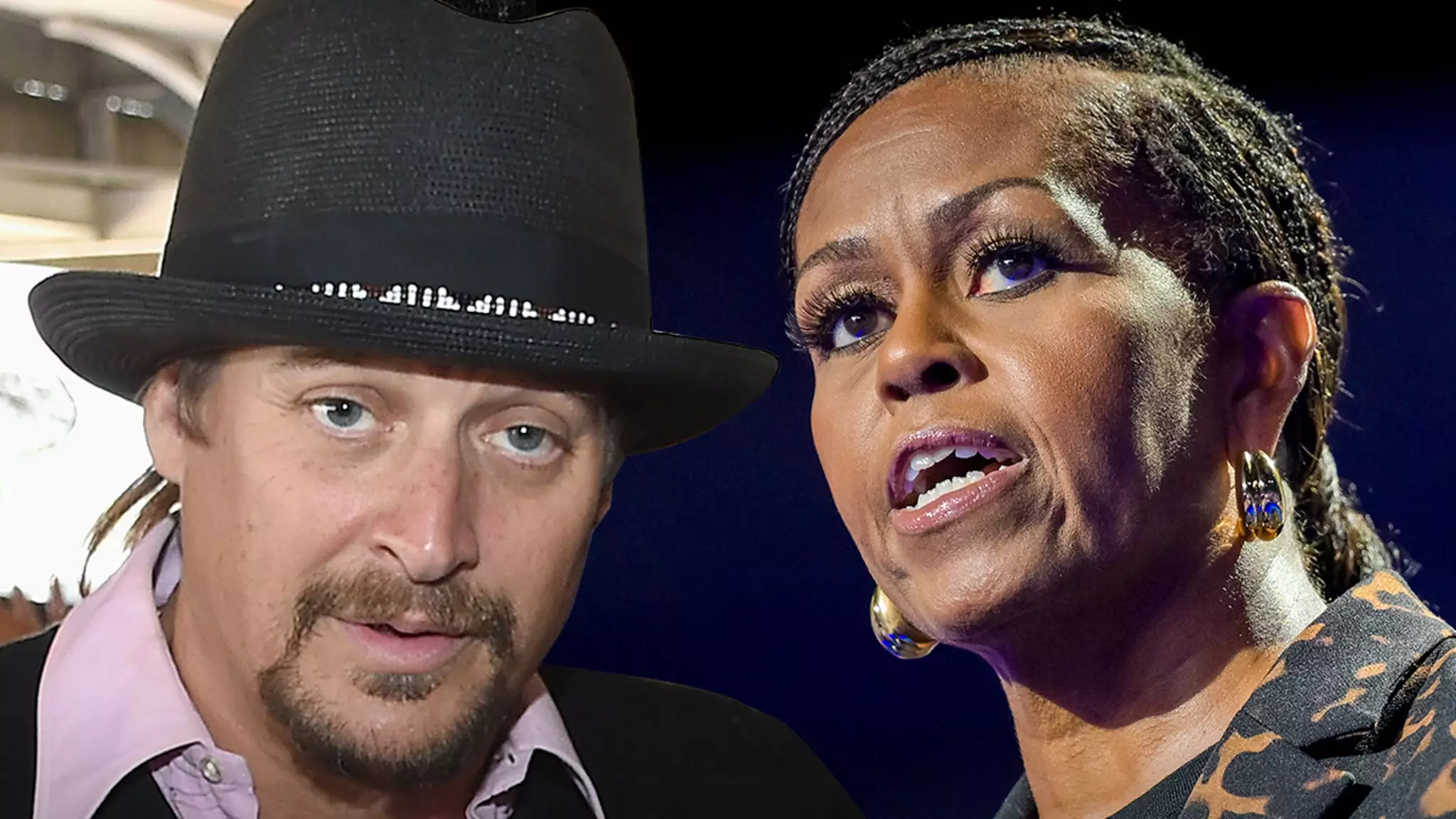In today’s polarized political climate, celebrity involvement in political events has become a topic of scrutiny and discourse. Kid Rock’s upcoming performance at one of Donald Trump’s inauguration events provides an intriguing case study into how cultural figures navigate their positions amid divisive political landscapes. Kid Rock, known for his brash, unapologetic style, has made headlines not only for his music but also for his outspoken political beliefs. His presence at the inauguration juxtaposed with the absence of former First Lady Michelle Obama illustrates the complex relationship between celebrity endorsement and political affiliation.
Michelle Obama’s decision to forgo attendance at Trump’s inauguration speaks volumes in the context of American politics. Although her absence was confirmed without much elaboration from her office, it signals a form of silent protest against a political climate she may perceive as contrary to her values. Her recent absence from notable events, such as Jimmy Carter’s funeral, further emphasizes her reluctance to engage in ceremonies associated with the Trump administration. This raises questions about the extent to which public figures feel moral or social obligations to participate in political transitions, particularly when the political agendas do not align with their own.
Kid Rock’s interview with Jesse Watters serves as a stark reminder of how celebrity opinions can shape public discourse. His commentary, claiming that Michelle Obama “seems a little angry,” offers an insight into his perception of the political landscape, where emotions often run high. This kind of unfiltered observation contributes to the meme-like spread of political narratives, where celebrities serve as both entertainers and commentators, sometimes at the cost of deeper, more nuanced discussions. In an age where sound bites reign supreme, Kid Rock’s statements could easily be misconstrued or simplified by audiences looking for easy answers.
Despite the political undertones, Kid Rock’s participation signifies a significant entertainment element surrounding the inauguration. His inclusion in a diverse roster that includes iconic artists like Carrie Underwood and The Village People not only aims to entertain but also to unify various factions of American culture through music. This crossover of politics and entertainment illustrates a trend where political events become platforms for artistic expression, all the while raising critical questions about the superficial nature of celebrity culture amidst serious national dialogues.
In analyzing Kid Rock’s impending performance at Trump’s inauguration, alongside Michelle Obama’s notable absence, we uncover a rich tapestry of American sentiments. As celebrities play larger roles in our political fabric, their actions—or inactions—become indicators of broader societal attitudes and divisions. Ultimately, we are left questioning not just the relationship between politics and artistry, but the very essence of civic engagement in a landscape that often prioritizes spectacle over substantive discourse.

